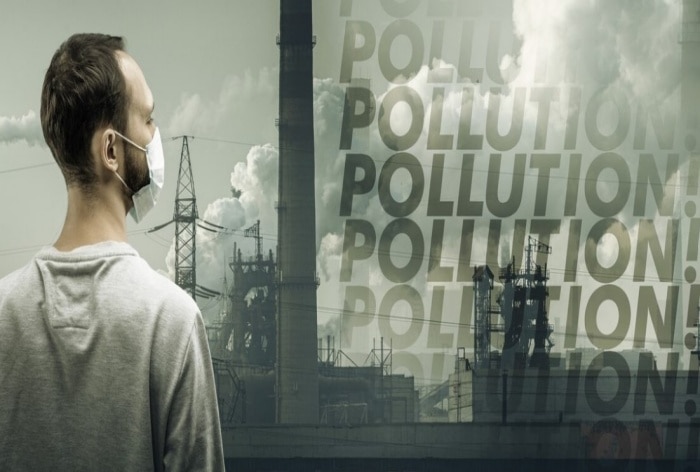Rising air pollution puts stress on the lungs, leads to breathing problems and also can trigger heart problems as well. Here is how to protect your heart while breathing toxic air.
Pollution has become a part of our everyday life. There is no escaping it especially when you are living in cities like Delhi and Mumbai. With rising toxicity in the air, it is important to have an understanding of how these pollutants can take a toll on our health and how we may shield ourselves. Breathing issues, respiratory problems, and itchy eyes are common issues with air pollution. But, these particulate matter, nitroxide and other toxic gases in the air also put the heart at risk.
These gases often get mixed with the bloodstream and lead to oxidative stress in our arteries. This can further trigger the risk of heart attack and other heart-related problems.
HOW POLLUTION CAUSES HEART PROBLEMS?
According to Dr. Dr Sandeep Nayar, Principal Director & HOD, Pulmonology, BLK-Max Super Speciality Hospital, going for a walk in such an environment can lead to inhaling a dangerous mixture of polluted air. Once these pollutants are inhaled, they will cause irritation of the respiratory tract and may lead to severe breathing problems. These pollutants then get diffused from the lungs to blood from where it gets carried to different parts of body. Noxious gases and small particulate matter like PM 2.5 are more harmful as they get impacted deep in our body.
Damage the blood vessels: Air pollutants, such as fine particulate matter (PM2.5), can damage the lining of the blood vessels. This can lead to inflammation and hardening of the arteries, which is a major risk factor for heart disease.
Increases blood pressure: Air pollution can also increase blood pressure. This is because air pollutants can trigger the release of stress hormones, which can cause the blood vessels to narrow. High blood pressure is another major risk factor for heart disease.
Increases the risk of blood clots: Air pollution can also increase the risk of blood clots. This is because air pollutants can damage the blood platelets, which are responsible for clotting blood. Blood clots can block blood vessels and lead to a heart attack or stroke.
May triggers arrhythmias: Air pollution can also trigger arrhythmias, which are abnormal heart rhythms. Arrhythmias can be serious and life-threatening.
WHO IS MORE AT RISK?
Pollution poses risks to everyone, but extremes of ages i.e. small children and elderly are more vulnerable as their immune system is slightly weaker than health adults. Many of elderly are suffering from comorbid conditions and hence are at risk of developing severe health issues. E
TIPS TO PREVENT HEART ATTACK AMID POLLUTION
- Avoid morning walks: Elderly are specially requested to avoid going out even for a morning walk. In case it is necessary to go out, they must cover themselves and wear a face mask. One should avoid strenuous exercise outside because when we exercise or run or even walk for some time, we tend to breathe faster and take deep breaths.
- Deep Breathing Exercises: Everyone must practise deep breathing exercises to boost lung health and respiratory system.
- Immunity-Building Diet: Consume more vitamin C, iron, calcium, and minerals to build up strong immunity to combat the pollutants.
- Limit your exposure to air pollution: This means avoiding areas with high levels of air pollution, such as major roads and factories. You can also check the air quality forecast and avoid going outside on days when the air quality is poor.
- Wear an air mask: If you must go outside on a day when the air quality is poor, wear an air mask to help protect yourself from air pollutants.
Using air purifiers at home can also help to reduce the toxic air from inside the homes. It is important to take all the necessary measures and strengthen our own health guards.
–>
